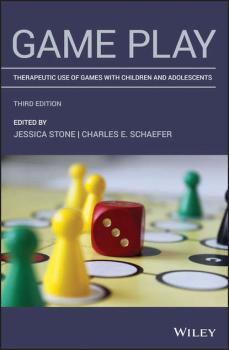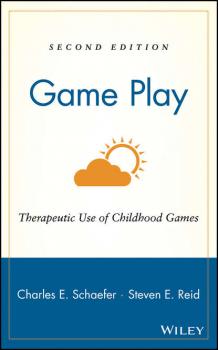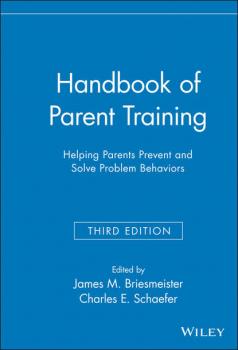Charles E. Schaefer
Список книг автора Charles E. SchaeferGame Play
The essential guide to game play therapy for mental health practitioners The revised and updated third edition of Game Play Therapy offers psychologists and psychiatrists a guide to game play therapy’s theoretical foundations and contains the practical applications that are appropriate for children and adolescents. Game playing has proven to invoke more goal-directed behavior, has the benefit of interpersonal interaction, and can perform a significant role in the adaptation to one's environment. With contributions from noted experts in the field, the third edition contains information on the time-tested, classic games and the most recent innovations and advances in game play approaches. Game Play Therapy’s revised third edition (like the previous editions) continues to fill a gap in the literature by offering mental health practitioners the information needed to understand why and how to use this intervention effectively. The contributors offer advice for choosing the most useful games from the more than 700 now available and describe the fundamentals of administering the games. This important updated book: Contains material on the recent advances in the field including information on electronic games and disorder-specific games Includes illustrative case studies that explore the process of game therapy Reviews the basics of the underlying principles and applications of game therapy Offers a wide-range of games with empirical evidence of the effectiveness of game therapy Written for psychologists, psychiatrists, and other mental health clinicians, the revised third edition of Game Play Therapy offers a guide that shows how to apply game therapy techniques to promote socialization, encourage the development of identity and self-esteem, and help individuals master anxiety.
Game Play
The long-awaited revision of the only book on game play available for mental health professionals Not only is play a pleasurable, naturally occurring behavior found in humans, it is also a driving force in our development. As opposed to the unstructured play often utilized in psychotherapy, game playing invokes more goal-directed behavior, carries the benefits of interpersonal interaction, and can perform a significant role in the adaptation to one's environment. This landmark, updated edition of Game Play explores the advantages of using games in clinical- and school-based therapeutic interventions with children and adolescents. This unique book shows how playing games can promote socialization, encourage the development of identity and self-esteem, and help individuals master anxiety-while setting the stage for deeper therapeutic intervention in subsequent sessions. Game Play Therapeutic Use of Childhood Games Second Edition Features: * New chapters on games in family therapy and games for specific disorders * Techniques and strategies for using game play to enhance communication, guidance, and relationships with clients * The different types of therapeutic games, elaborating on their various clinical applications
Handbook of Parent Training
A guide to the latest tools for teaching effective and positive parenting skills In the last three decades, parent training has established itself as an empirically sound, highly successful, and cost-effective intervention strategy for both pre-venting and treating behavior disorders in children. Handbook of Parent Training, Third Edition offers a unique opportunity to learn about the latest research findings and clinical developments in parent training from leading innovators in the field. Featuring new chapters, this thoroughly revised and updated edition covers issues that have emerged in recent years. Readers will find the latest information on such topics as: * Behavioral family intervention for childhood anxiety * Working with parents of aggressive school-age children * Preventive parent training techniques that support low-income, ethnic minority parents of preschoolers * Treating autism and Asperger's Syndrome * Parenting and learning tools including role playing and modeling positive and effective parenting styles Offering practical advice and guidance for parent training, each chapter author begins by identifying a specific problem and then describes the best approach to identifying, assessing, and treating the problem. In every instance, descriptions of therapeutic techniques are multimodal and integrate theory, research, implementation strategies, and extensive case material. Handbook of Parent Training, Third Edition is a valuable professional resource for child psychologists, school psychologists, and all mental health professionals with an interest in parent skills training.


